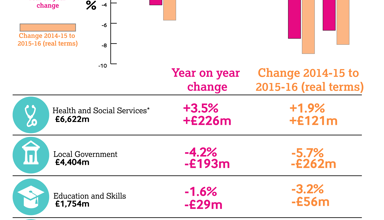Article by Robin Wilkinson, National Assembly for Wales Research Service
Public procurement is the process whereby organisations that spend public money (known as “contracting authorities”) buy goods, services and works, according to rules laid down by the European Union. The Welsh public sector spends an estimate £4.3 billion annually, making public procurement in Wales equivalent to over a quarter of the total Welsh Government budget. What is the Welsh Government doing to maximise the impact of this spend on the Welsh economy? The Welsh Government’s tendency in recent years has been to favour policies that use procurement as a strategic tool to support jobs and growth in Wales, rather than focusing primarily on saving contracting authorities money. In early 2012 a Task and Finish Group of the Assembly’s Enterprise and Business Committee published a report into procurement in Wales. It did this in the context of looking at new EU procurement directives that were being discussed in Brussels: for more information about the likely impact of these new directives please see a previous Research Service blog post. A key point to emerge from the Committee’s work was that practical barriers within Wales were a far greater obstacle to achieving the Welsh Government’s desired policy outcomes from procurement than was the relevant legal framework. In summary, the Committee’s recommendations focused on the following key areas:
- Creativity: purchasers in Wales must work more creatively within the legal framework to ensure that procurement policy objectives are met, rather than just ensuring compliance with legal requirements;
- Competency: purchasers’ skills must be improved so that they are more able to achieve the results they want from procurement activity, and
- Capacity: the procurement sector in Wales must have greater capacity.
Subsequently the Welsh Government published a report, Maximising the Impact of Welsh Procurement Policy, in September 2012. This was authored by John McClelland – who had previously produced a report for the Scottish Government about how it could improve its procurement activity. John McClelland stated that his report had “good synergy with the conclusions and recommendations of the Enterprise and Business Committee’s report.” The Minister responsible for procurement - Jane Hutt AM, Minister for Finance – had previously unequivocally accepted all of the Committee’s recommendations. There therefore seems to be a fair amount of agreement within Wales as to how the Welsh Government should seek to maximise the impact of public procurement. But how much progress has it made? Following the McClelland Report, the Minister for Finance published a Wales Procurement Policy Statement. This set out the procurement practices and specific actions that the Minister wanted public sector organisations in Wales to follow in order to implement the recommendations in the McClelland report (the statement has since been updated, and an up-to-date version is available here). One of the commitments in this first Procurement Policy Statement was for the Welsh Government to undertake a series of annual “Procurement Fitness Checks” to assess the procurement capacity of contracting authorities. The Minister announced the results of these fitness checks for local government in August 2014. She noted that 12 out of 22 councils were assessed “at a maturity level below conforming” to an adequate organisational procurement capability, including one organisation (Isle of Anglesey Council) identified as non-conforming” (copies of the local government fitness checks are available here). Another recommendation in the McClelland Report was for the Welsh Government to establish a “National Procurement Service” to deal centrally with “common and repetitive spend” on behalf of Welsh contracting authorities. One of the intentions behind this service was to save money by centrally coordinating, and driving a better deal, on the procurement of certain goods and services. At the time, McClelland stated that around 20 per cent of Welsh public sector procurement was conducted through collaborative contracts, compared to what he thought was an ideal of 50 per cent. The National Procurement Service was subsequently launched in November 2013. The Minister has accepted a recommendation from the Assembly’s Public Accounts Committee that the Welsh Government should publish an annual report for this service, and stated that the first report will be published in April 2015 following the first full financial year of the Service’s operation. Other Welsh Government activity intended to maximise the impact of public procurement in Wales includes:
- Home Grown Talent: an EU-funded project to develop procurement skills and capability across public services in Wales;
- Supplier Qualification Information Database (SQuID): an electronic system designed to, among other things, simplify the process of obtaining information from bidders. This is intended to make the procurement process easier for SMEs;
- Updated Community Benefits Guidance: this update to the 2010 guidance outlines how contracting authorities in Wales can use procurement to benefit the local community – for example, by securing jobs and training opportunities for local people.
But what impact is all this activity having? One measure that could provide an indication is the volume of work won by indigenous businesses, which are often SMEs. Politicians are keen to see this figure rise as this would mean more money staying within Wales, not to mention the multiplier effects of money from small local companies being re-spent in local supply chains (see the FSB publication, Local Procurement: Making the most of small businesses, one year on) However, the most recent figures looking at this date from 2010-11, when suppliers based in Wales won 52 per cent of contracts, up from 35 per cent in 2004. Though the Minister stated that the Welsh Government has begun analysing procurement spend for the years 2012-13 and 2013-14, no further comparable figures have emerged. A more up-to-date figure would clearly help Assembly Members scrutinise the effectiveness of recent Welsh Government procurement activity. Without data such as this, the full impact of activity in this area will remain unknown.






